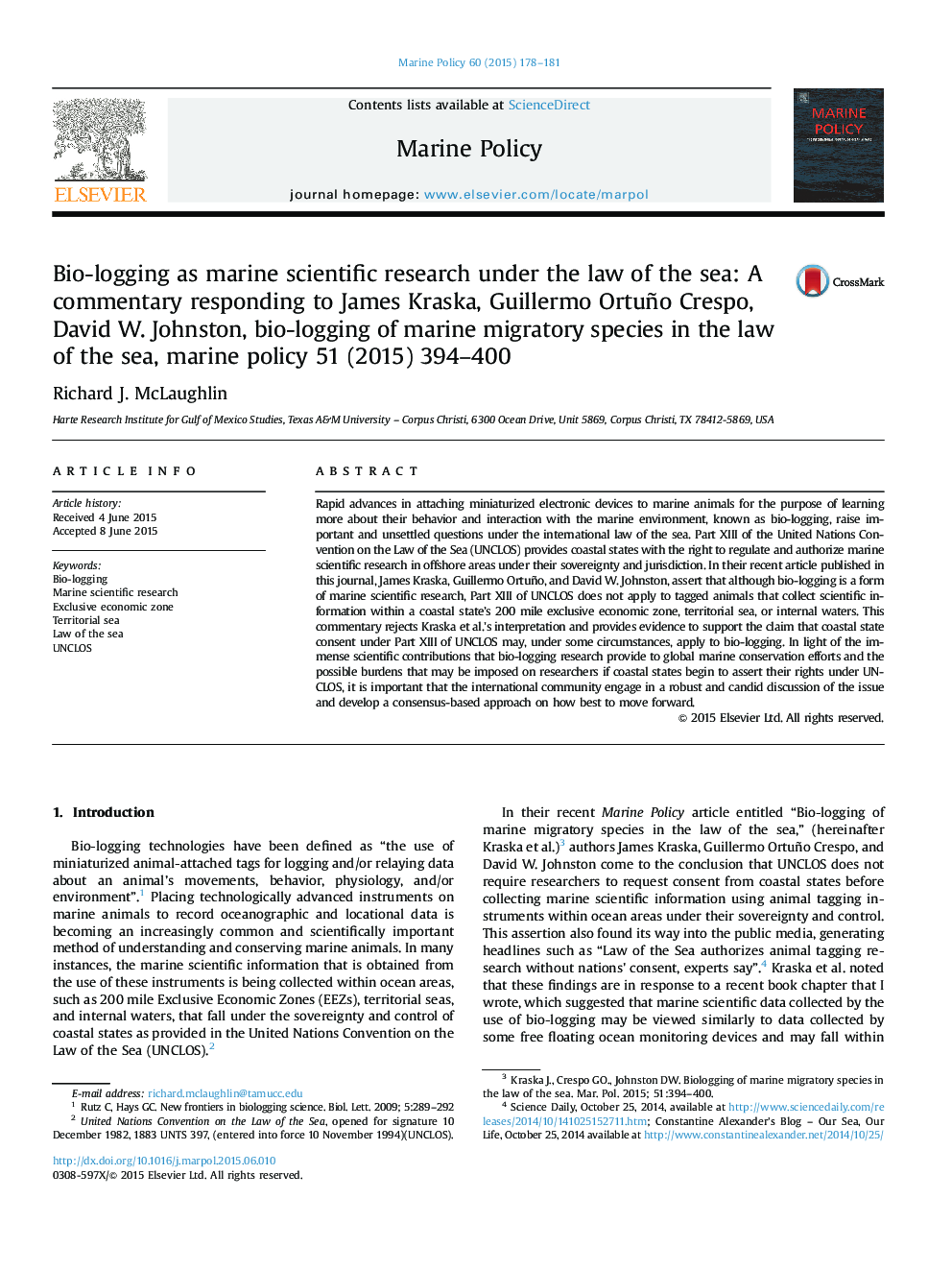| کد مقاله | کد نشریه | سال انتشار | مقاله انگلیسی | نسخه تمام متن |
|---|---|---|---|---|
| 7490069 | 1485519 | 2015 | 4 صفحه PDF | دانلود رایگان |
عنوان انگلیسی مقاله ISI
Bio-logging as marine scientific research under the law of the sea: A commentary responding to James Kraska, Guillermo Ortuño Crespo, David W. Johnston, bio-logging of marine migratory species in the law of the sea, Marine Policy 51 (2015) 394-400
دانلود مقاله + سفارش ترجمه
دانلود مقاله ISI انگلیسی
رایگان برای ایرانیان
کلمات کلیدی
موضوعات مرتبط
مهندسی و علوم پایه
سایر رشته های مهندسی
مهندسی دریا (اقیانوس)
پیش نمایش صفحه اول مقاله

چکیده انگلیسی
Rapid advances in attaching miniaturized electronic devices to marine animals for the purpose of learning more about their behavior and interaction with the marine environment, known as bio-logging, raise important and unsettled questions under the international law of the sea. Part XIII of the United Nations Convention on the Law of the Sea (UNCLOS) provides coastal states with the right to regulate and authorize marine scientific research in offshore areas under their sovereignty and jurisdiction. In their recent article published in this journal, James Kraska, Guillermo Ortuño, and David W. Johnston, assert that although bio-logging is a form of marine scientific research, Part XIII of UNCLOS does not apply to tagged animals that collect scientific information within a coastal state's 200 mile exclusive economic zone, territorial sea, or internal waters. This commentary rejects Kraska et al.'s interpretation and provides evidence to support the claim that coastal state consent under Part XIII of UNCLOS may, under some circumstances, apply to bio-logging. In light of the immense scientific contributions that bio-logging research provide to global marine conservation efforts and the possible burdens that may be imposed on researchers if coastal states begin to assert their rights under UNCLOS, it is important that the international community engage in a robust and candid discussion of the issue and develop a consensus-based approach on how best to move forward.
ناشر
Database: Elsevier - ScienceDirect (ساینس دایرکت)
Journal: Marine Policy - Volume 60, October 2015, Pages 178-181
Journal: Marine Policy - Volume 60, October 2015, Pages 178-181
نویسندگان
Richard J. McLaughlin,